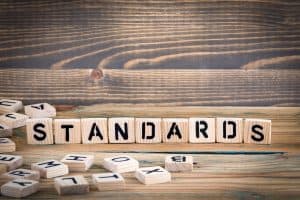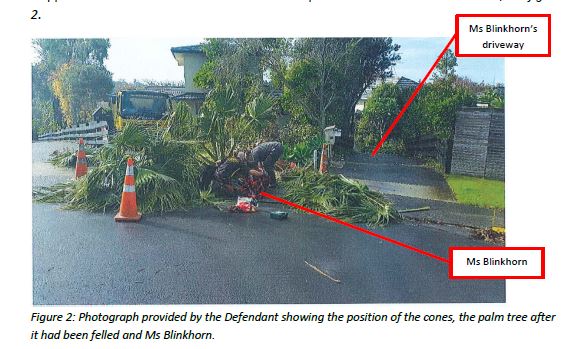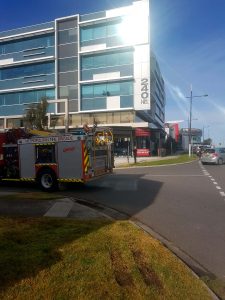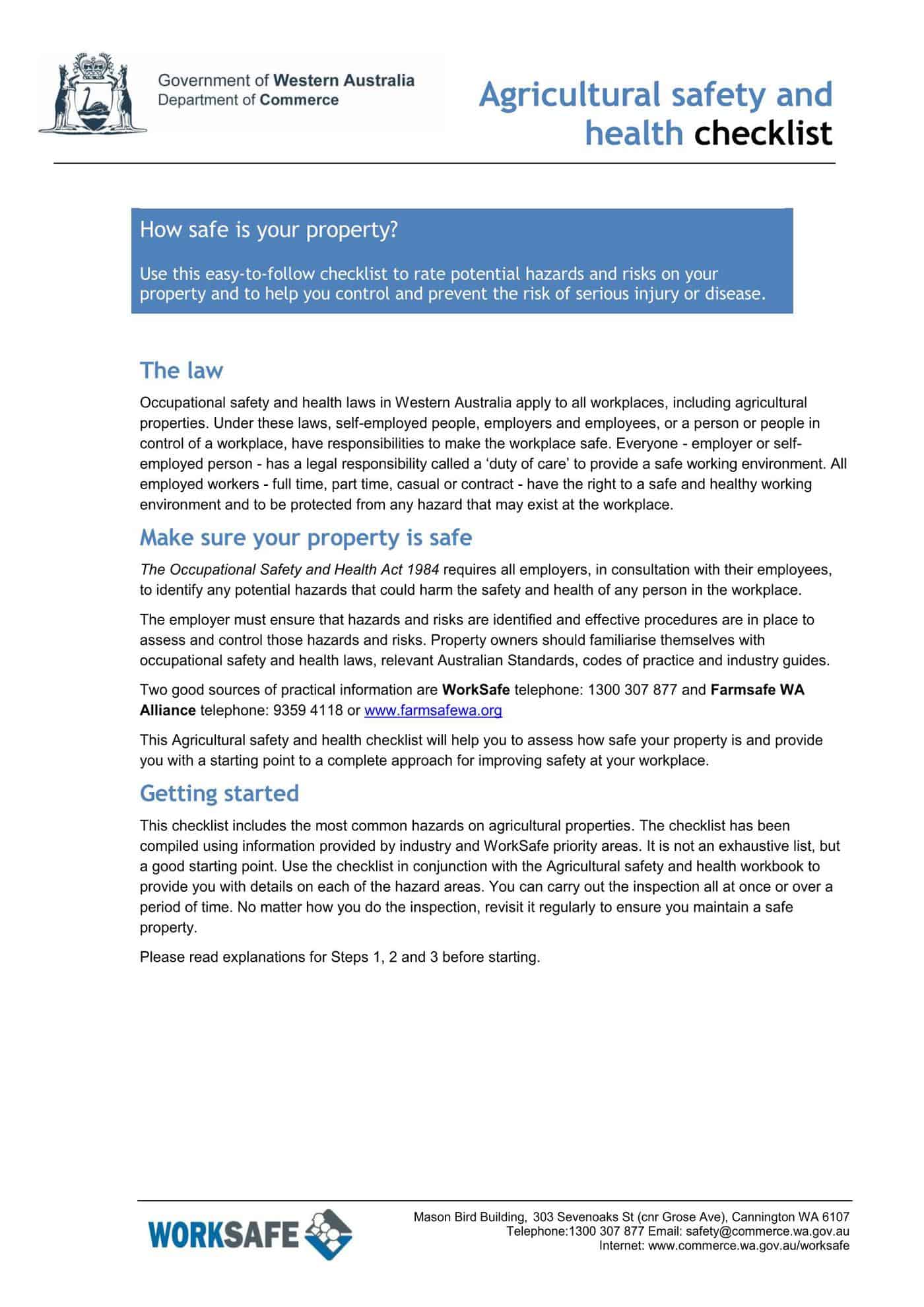 The publication date for the first truly international Standard on occupational health and safety (OHS) management systems, ISO45001, the rhetoric is heating up in Australia.
The publication date for the first truly international Standard on occupational health and safety (OHS) management systems, ISO45001, the rhetoric is heating up in Australia.
Category: small business
New farming incident statistics
The latest statistics of farm injuries from the Australian Institute of Health and Welfare provide a useful insight in to the workplace risks of Australian farms. Given the workplace focus of the SafetyAtWorkBlog, and the articles written about the risk of working with quad bikes, the following statistics are of great interest:
“For quad bikes, almost 90% of injuries were sustained by the driver in people aged 15 and over.” (page 9)
“For injuries involving quad bikes, males accounted for two-thirds (66%) of all hospitalisations for children aged 0–14 and almost 80% of all hospitalisations for people aged 15 and over.” (page 9)
Prosecution over fallen tree threatens small business viability
A recent occupational health and safety (OHS) prosecution in New Zealand illustrates many issues and attitudes to safety held by small business operators around the world.

More work needed on public evacuation protocols
 On 12 July 2017 a kitchen fire broke out in a densely packed restaurant and cafe sector of Melbourne, Australia. This article illustrates some of the localised response and firefighting attempts. Earlier that day I was in a cafe in Melbourne’s northern suburbs when the building’s evacuation alarm sounded (pictured right). There was no fire in the cafe and patrons were confused when directed to evacuate by a voice on the speaker/alarm system. This confusion was not helped when the young waiters told patrons to stay, kept serving patrons and continued to take orders. This experience illustrates significant misunderstandings about emergency protocols in public areas. Continue reading “More work needed on public evacuation protocols”
On 12 July 2017 a kitchen fire broke out in a densely packed restaurant and cafe sector of Melbourne, Australia. This article illustrates some of the localised response and firefighting attempts. Earlier that day I was in a cafe in Melbourne’s northern suburbs when the building’s evacuation alarm sounded (pictured right). There was no fire in the cafe and patrons were confused when directed to evacuate by a voice on the speaker/alarm system. This confusion was not helped when the young waiters told patrons to stay, kept serving patrons and continued to take orders. This experience illustrates significant misunderstandings about emergency protocols in public areas. Continue reading “More work needed on public evacuation protocols”
Outsourcing inductions may not support good safety management
 SafetyAtWorkBlog has been critical of the use and sale of generic Safe Work Method Statements (SWMS) for work tasks that can be managed through simpler and freely available job safety analyses (JSAs) and face-to-face communication. On 27 January 2017, the Chamber of Commerce and Industry of Western Australia (CCI) launched generic inductions.
SafetyAtWorkBlog has been critical of the use and sale of generic Safe Work Method Statements (SWMS) for work tasks that can be managed through simpler and freely available job safety analyses (JSAs) and face-to-face communication. On 27 January 2017, the Chamber of Commerce and Industry of Western Australia (CCI) launched generic inductions.
The CCI asks and answers, in its media release:
“So why is it that so many workplaces don’t provide an induction? Our Members are telling us that they don’t really know what information they should be giving to a new starter.”
An internet search of the WorkSafeWA website would have led one to its “
Inconsistent quad bike safety advice in WA
 On 18 January 2017, WorkSafeWA released an agricultural safety checklist which includes some hazards associated with quad bike operations. West Australia’s occupational health and safety (OHS) regulator stresses the checklist only lists common hazards and refers to a handbook. The only agricultural handbook available on its website is from 2014 and the quad bike safety information seems outdated or, at least, inconsistent with the advice from South Australia and elsewhere. Continue reading “Inconsistent quad bike safety advice in WA”
On 18 January 2017, WorkSafeWA released an agricultural safety checklist which includes some hazards associated with quad bike operations. West Australia’s occupational health and safety (OHS) regulator stresses the checklist only lists common hazards and refers to a handbook. The only agricultural handbook available on its website is from 2014 and the quad bike safety information seems outdated or, at least, inconsistent with the advice from South Australia and elsewhere. Continue reading “Inconsistent quad bike safety advice in WA”
Dummies can equal clarity
 It took a long time but Wiley has published a Dummies guide on Health and Safety At Work. The lack of an occupational health and safety (OHS) book in this series has always been a mystery particularly when the Dummies” market seems to be, primarily, small- to medium-sized businesses. This edition is written for the UK market but the vast majority of the book is applicable to any jurisdiction that is based on the original UK OHS laws. But is it any good?
It took a long time but Wiley has published a Dummies guide on Health and Safety At Work. The lack of an occupational health and safety (OHS) book in this series has always been a mystery particularly when the Dummies” market seems to be, primarily, small- to medium-sized businesses. This edition is written for the UK market but the vast majority of the book is applicable to any jurisdiction that is based on the original UK OHS laws. But is it any good?
SafetyAtWorkBlog dipped into several chapters of the book to see if it was on the right path.
